News
Customs To Deploy Drones At 1,500 Illegal Routes To Check Food Smuggling
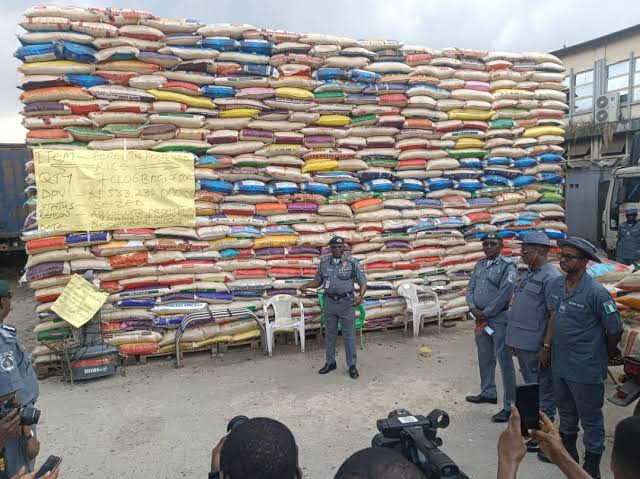
In a move to tighten the noose on food smugglers, the Nigeria Customs Service has deployed drones and more operatives to restrict the diversion of foodstuff to neighbouring countries through about 1,500 identified illegal border crossings.
The National Public Relations Officer of Customs, Abdullahi Maiwada, confirmed to The PUNCH on Sunday that the NCS had increased its presence across the borders, including the illegal routes.
The development, he added, was in compliance with the Presidential directive to the security agencies to stop the smuggling of food out of the country as part of decisive measures to stem the food crisis in the country.
Amid the falling value of the naira, traders who deal in grains have been taking grains and other staples to Niger Republic, Chad and Cameroon for higher profits.
But this had driven up the prices of food in Nigeria, resulting in protests by citizens and attacks on food trucks by desperate citizens in some states.
Worried by the situation, President Bola Tinubu directed the National Security Adviser, the Inspector-General of Police and the Director, Department of State Services to go after food hoarders and smugglers.
The government ruled out the importation of food as part of strategies to address the high costs of foodstuffs and the economic hardship troubling the country.
Following the directive, dozens of food trucks leaving the country had been intercepted and sent back.
Giving an update on the measures against food hoarding and smuggling, the NCS spokesman,Maiwada, explained that the deployment of drones was under the Trade Modernisation Project of the Federal Government, noting that the equipment needed for the protection of the borders was being provided through the TMP.
“The deployment of drones and other software is part of our Trade Modernisation Project, which has been concessioned. The TMP was approved by the Federal Government for 20 years. So any development that has to do with what you are asking is part of the contract,” he stated.
In July 2023, it was reported that the NCS was collaborating with the Trade Modernisation Project Limited under a public, private partnership arrangement.
Speaking at the inauguration of the NCS Trade Modernisation Project management office in Abuja at the time, Saleh Ahmadu, chairman of the project, said the TMP would invest a total of $3.2bn in the aforementioned period.
“The project would result in efficiency in NCS’ service delivery. Under the terms of the concession agreement, TMP will invest a total of $3.2bn over a 20-year period, which will generate more than $200bn in revenue for the Federal Government.
“As trade becomes increasingly complicated, the project will equip the NCS with the necessary technology tools and platforms to drive trade harmonisation,” Ahmadu had stated.
Asked about the number of personnel that would be recruited, the Customs spokesperson said, “We have recruited a large number of personnel in the last few years in terms of human resources. And even this year, based on the approved budget, there is going to be the recruitment of more junior staff to be able to effectively manage the border areas. I may not be able to give the exact figure now, but I know that over 2,000 officers have been recruited from 2019 till now.
“In terms of equipment, modernisation, the use of drones and other sophisticated technologies in managing the borders that are contained in our Trade Modernisation Project which is concessioned for 20 years.
“The concession agreement is between the Federal Government and Trade Modernisation Limited. They are providing scanners, software and all necessary technologies required at the seaports, airports and borders.”
On whether the concession was already in place, Maiwada stated that the concessionaires had started working.
“It is in place and they are working assiduously. They have started working and very soon we will see the manifestation of what they are doing,” he stated.
On the deployment of technology to check food smuggling, the chief superintendent of Customs admitted “There is still room for improvement.’’
He added, “However, very soon you are going to see the deployment of Non-intrusive Inspection Technology across our borders. I think they are providing about 74 of them or more. These are to be deployed on the seaports, airports and land borders.”
NIT technologies are force multipliers that enable Customs officers to screen or examine a larger portion of the stream of commercial traffic while facilitating the flow of legitimate trade, cargo and passengers.
They include digital X-ray and vibration monitoring, ultra-high frequency analysis and dynamic contact resistance measurements.
Maiwada had earlier told our correspondent on Saturday that the agency had intercepted food smugglers in Kano, Katsina and Sokoto states.
The agency recently revealed that it intercepted 15 trailers that were fully loaded with food items and were heading out of the country through the Sokoto State border.
News
Speaker Gambia National Assembly Calls for Urgent Action on ECOWAS Crisis
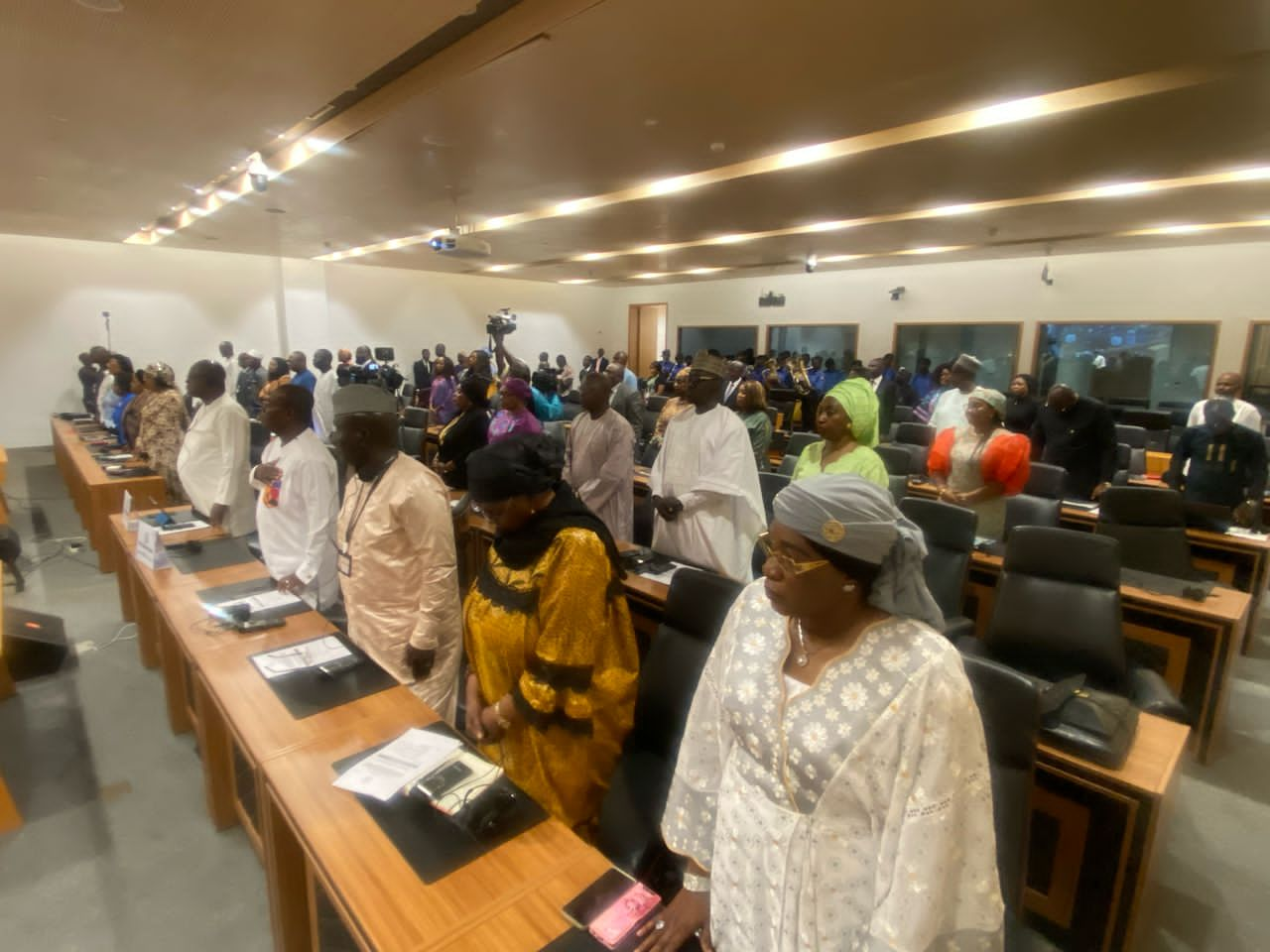
…as foreign minister say member states must be united
By Gloria Ikibah
Speaker of The Gambia National Assembly, Hon. Fabakary Tombong Jatta, has urged members of the ECOWAS Parliament to face the realities of the region’s challenges following the withdrawal of Burkina Faso, Mali, and Niger from the regional body.
Speaking at the opening of the Delocalised Meeting of the ECOWAS Joint Committees on Monday in Banjul, The Gambia, Hon. Jatta said, the joint committee meeting was to ‘Consider the Political, Socio-Economic and Humanitarian Impact of the Withdrawal of Burkina Faso, Mali and Niger from ECOWAS’.
The Speaker who highlighted the importance of the theme, said the situation demands deep reflection.
He said: “The theme under which this meeting is convened is not merely a topic for discussion; it calls for a deeper introspection of the founding principles of ECOWAS and to what extent these principles are serving the wishes and aspirations of our Citizens”.
The Speaker described the withdrawal of Mali, Burkina Faso, and Niger on January 29, 2025, as the most significant crisis in West Africa’s regional integration since the founding of ECOWAS in 1975.
He praised ECOWAS’s approach to the crisis, noting, “It is however worth noting that despite the major setback the withdrawal represents, ECOWAS measured and pragmatic approach shows the commitment to building bridges for cooperation and is highly commendable.”
Hon. Jatta therefore urged parliamentarians to recognize the complex causes of the withdrawal, as he said that the withdrawal could disrupt trade, increase security threats, and affect cross-border communities.
“As you take stock and deliberate on the impact of the withdrawal of the Alliance of Sahel States, do not lose sight of the fact that the departure of the Sahel states reflects a complex web of security concerns, geopolitical realignments and institutional failures.
“The immediate impact includes the potential disruption of established trade routes and economic zones. Port cities and transit trade could experience an economic downturn and cross-border communities and traditional trade networks may face challenges,” he said.
The Speaker warned about wider implications for African unity. “The split of ECOWAS poses profound implications for the African Union’s broader integration agenda, challenging current realities and future assumptions,” he said.
Despite the challenges, Hon. Jatta expressed optimism. that the resolutions that will emerge from this meeting would include strengthening the arm of parliamentary diplomacy to the Sahel states through constructive engagements and collaborations.
“Choosing isolation over regional cooperation would result in economic isolation and increased maritime access costs as landlocked nations. Additionally, they risk reduced foreign direct investment due to perceived instability and limited market access,” he added.
Hon. Jatta therefore called for dedication and urgency. “As parliamentarians, we have a crucial role to play in making this vision a reality. We must, therefore, approach our deliberations with a sense of urgency, commitment and determination, knowing that the hopes and aspirations of millions of ECOWAS citizens rest on our shoulders.
Without any shred of doubt, I am confident that, together, we can overcome the challenges before us and pave the way for a more integrated, peaceful, and prosperous ECOWAS region,” he said.
In his goodwill, Minister of Foreign Affairs of The Gambia, Dr. Mamadou Tangara, called on ECOWAS member states to strengthen unity and solidarity as the region faces critical political and security challenges.
Dr. Tangara noted its significance as the regional body marks its 50th anniversary.
“Your decision to organize this important delocalized sitting in Banjul is a clear testimony of your strong commitment to bring ECOWAS closer to its citizens. “The Government of The Gambia salutes this lofty decision of the Sixth Legislature”, he said.
Addressing the theme of the sitting, the withdrawal of Burkina Faso, Mali, and Niger from ECOWAS, Dr. Tangara described it as unfortunate butemphasised hope for reconciliation.
He stressed that the vision of the founding fathers of ECOWAS and the African Union must continue to guide the region.
“We are all better off together as one family; one united West Africa with a common history, geography and destiny. We can overcome our disagreements and differences. We have the capacity, the readiness and willingness to achieve regional unity.
“Our unity is our strength. Let us work towards attaining African unity as encapsulated in the vision and dreams of the founding fathers,” Dr. Tangara urged.
The Foreign Minister reflected on the original goals of ECOWAS, describing the organization as a symbol of Pan-Africanism and economic emancipation.
And cautioned that the withdrawal of member states could weaken the dream of a united Africa.
“At the heart of the founding of ECOWAS was the recognition of the need for greater Pan-Africanism, African unity, solidarity and the economic emancipation of our states from the vestiges of colonialism.
“Any withdrawal from any of those building blocks by member states undermines African unity, integration and solidarity,” he stated.
Dr. Tangara therefore called for continuous engagement with Burkina Faso, Mali and Niger, as he said, “we cannot lose hope or patience and adopt abandonment as a policy.”
Dr. Tangara emphasised the many achievements of ECOWAS, from peacekeeping efforts to trade and free movement across borders, and challenged the notion that democracy and good governance are foreign to Africa.
“Some of our countries are enjoying peace today thanks to the sacrifices and invaluable contributions made by ECOWAS and its member states. The free movement of goods and people across our borders has become a standard being emulated around the world.
“African citizens have and nurture expectations that they will participate in the choice of their leaders and that their governments will govern justly based on rule of law and respect for human rights,” he said.
Dr. Tangara urged the delegates to focus on pragmatic solutions and regional cooperation, especially in light of growing security threats.
“No state in the region is secure without the security of other states.
“Our common history, our diverse peoples, our shared geography, our rich culture, our collective security and mutual prosperity place a unique burden on all of us here present to pursue unity, integration and prosperity,” he said.
News
True Democracy Means Everyone Must Have a Voice – Speaker Abbas
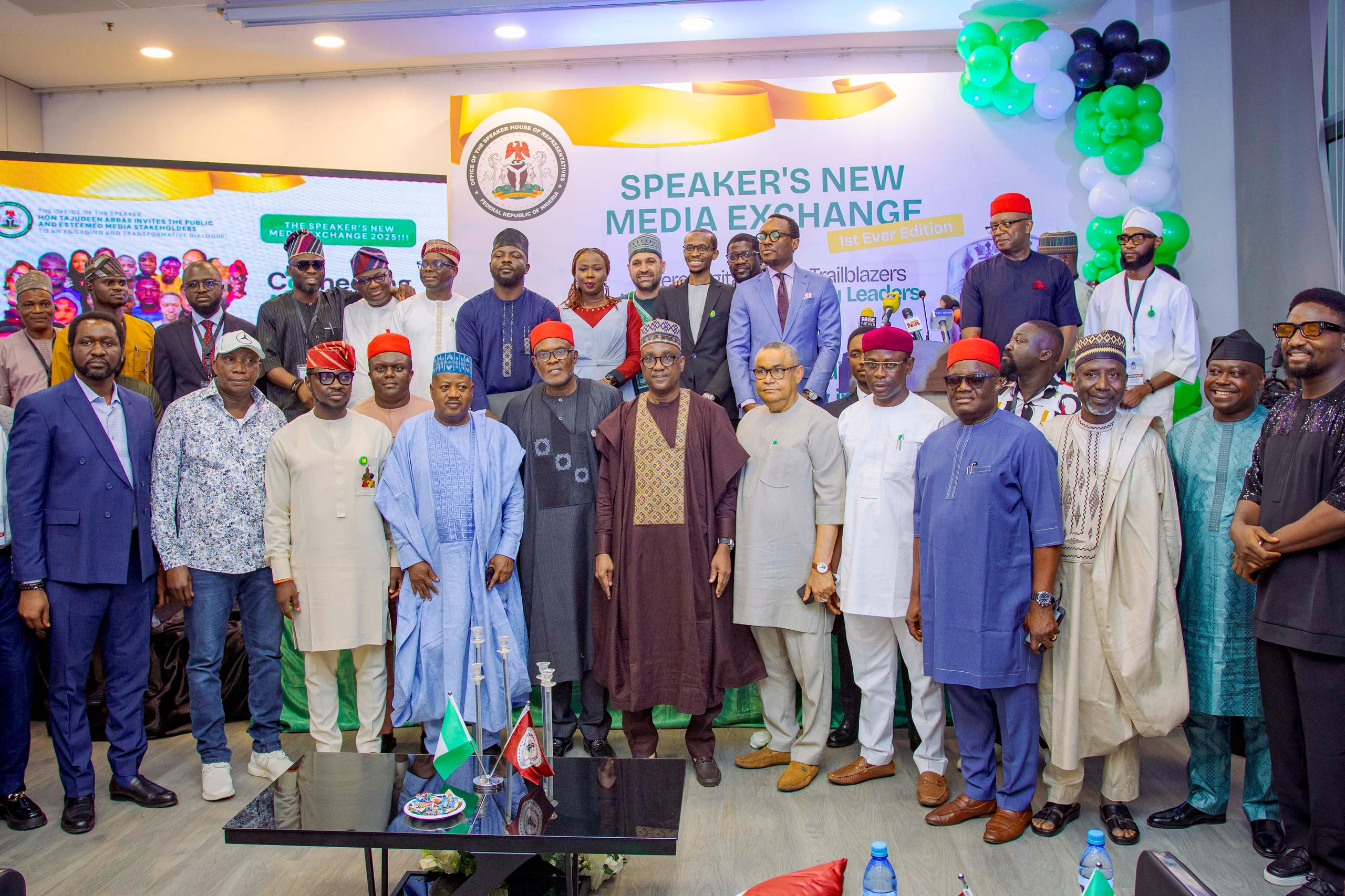
…as young Nigerians, social media influencers push for free speech, national unity
By Gloria Ikibah
Speaker of the House of Representatives, Tajudeen Abbas, says the strength of Nigeria’s democracy should be judged by how much all citizens, especially key groups, are included in decision-making.
Speaker Abbas who stated this while meeting with a group of social media influencers, many of them young Nigerians, at the ‘Speaker’s New Media Exchange 2025’, stressed the importance of youth voices and the role of online platforms in shaping the country’s democracy on Monday in Abuja.
News
Igbo Traditional Rulers Pledge Support for President Tinubu’s Re-Election In 2027
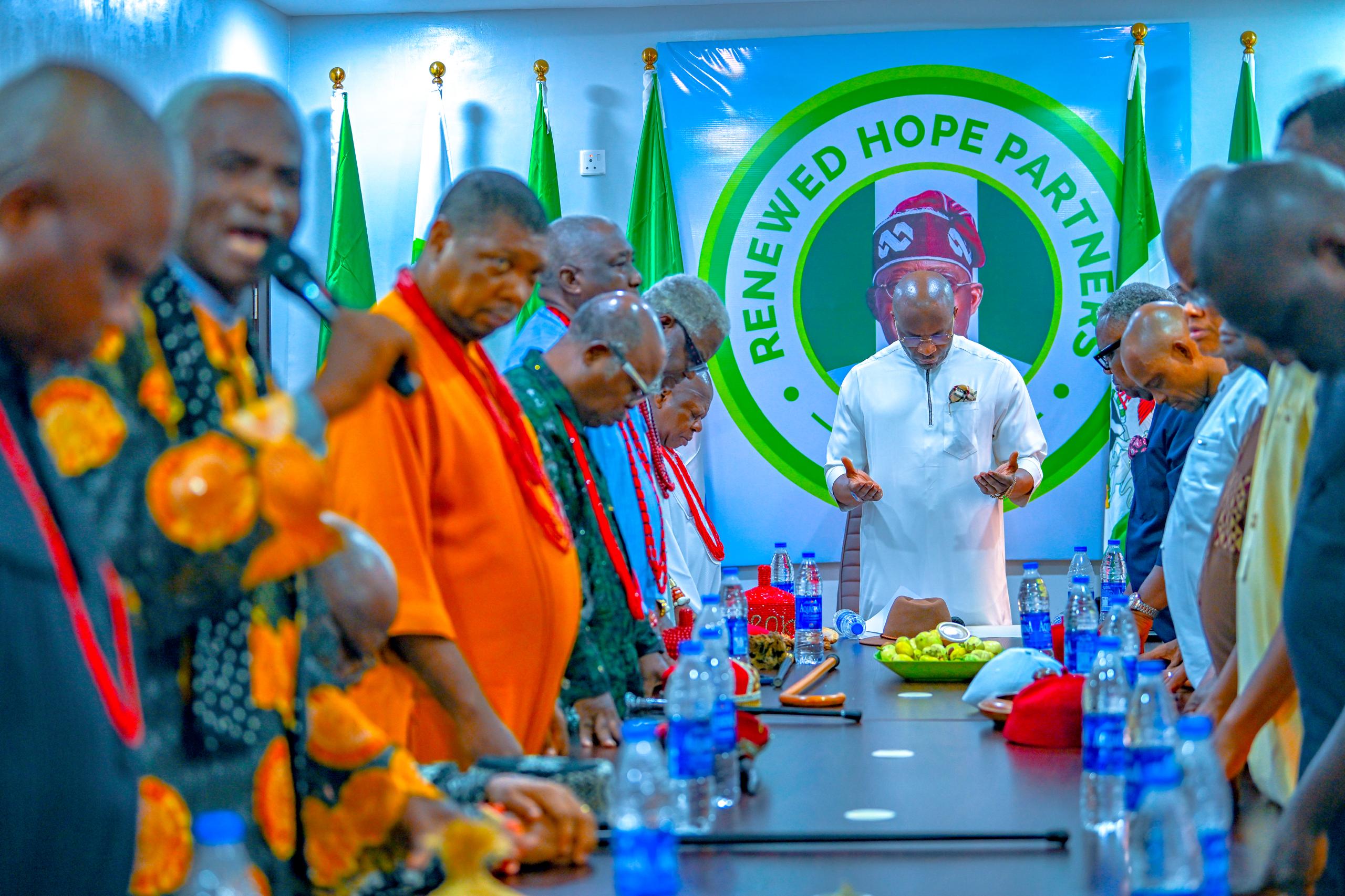
-
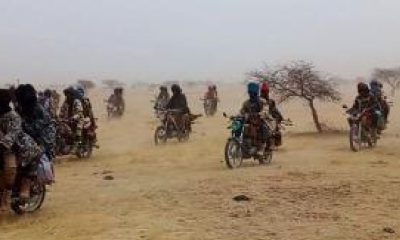
 News15 hours ago
News15 hours agoInsecurity: BUDA urges govt to quickly rescue Baruten from terrorists
-

 News20 hours ago
News20 hours agoJust in: Senator Natasha tenders satirical ‘apology’ to Akpabio
-

 News16 hours ago
News16 hours agoUNUSUAL! Without invitation, Police declared me wanted — Daughter of ABC Transport owner
-
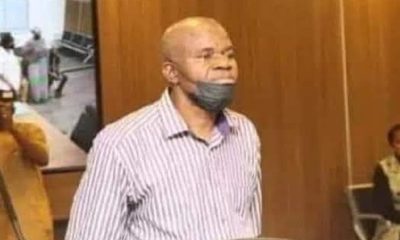
 News11 hours ago
News11 hours agoBreaking: Late gospel singer Osinachi’s husband sentenced to death by hanging
-
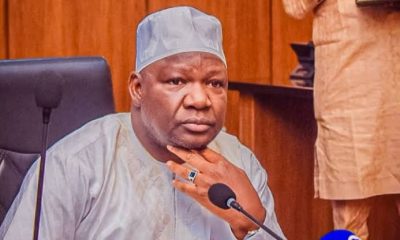
 News13 hours ago
News13 hours agoWeeks to 2nd anniversary, Niger deputy gov, plans to resign, move out personal effects
-

 Metro22 hours ago
Metro22 hours ago‘My husband always makes love throughout the night until morning’ – Woman Wants Divorce
-
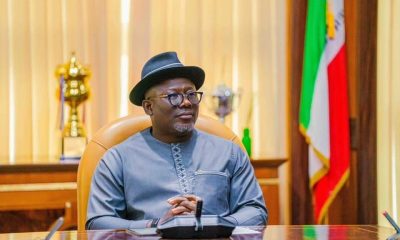
 News18 hours ago
News18 hours agoGov Oborevwori’s top aide suddenly resigns from govt
-

 Entertainment16 hours ago
Entertainment16 hours agoMy tongue slipped, Annie Macaulay apologizes after referring to Herself as ‘Idibia’ at Headies 2025






